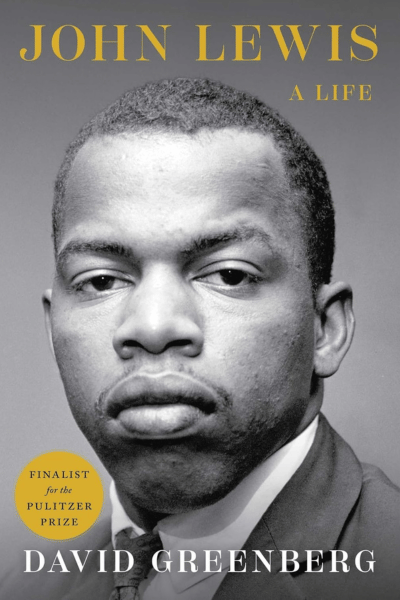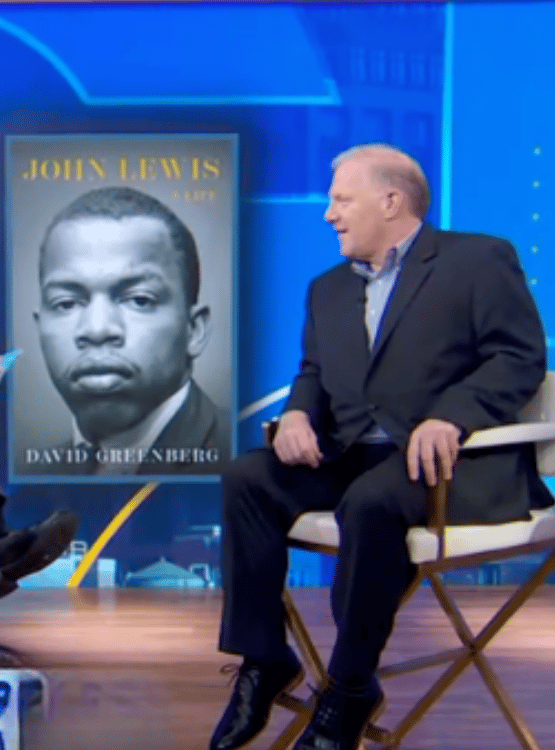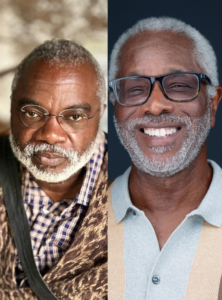David Greenberg is distinguished professor of History and of Journalism and Media Studies at Rutgers University. His latest book, John Lewis: A Life (Simon & Schuster, 2024), a Pulitzer Prize Finalist, has been called “panoramic and richly insightful” (Brent Staples, The New York Times) and a biography that “captures Lewis’s life, achievements, and times with heart-stopping precision” (Booklist). A winner of fellowships from the Guggenheim Foundation, the NEH, and the Cullman Center of the New York Public Library, Greenberg is the author or editor of several books on American history and politics including Nixon’s Shadow: The History of an Image (2003) and Republic of Spin: An Inside History of the American Presidency (2016), both winners of multiple prizes. Earlier in his career he served as acting editor of The New Republic and a columnist for Slate, and he has written for The New Yorker, The Atlantic, The New York Times, The Washington Post, The Wall Street Journal, Foreign Affairs, Politico, Liberties, and many other scholarly and popular publications. He holds a PhD in history from Columbia University and a BA from Yale and lives with his family in Manhattan.
John Lewis: A Life
Pulitzer Prize Finalist
New York Times Book Review Top 100 Books of 2024
Explore the “comprehensive and compelling” (Jon Meacham) biography of civil rights leader John Lewis, celebrated as “the conscience of Congress,” through a narrative that weaves together exclusive interviews, never-before-seen FBI files, and documents, offering profound insights into his significant role in American history and the civil rights movement.
Born into poverty in rural Alabama, John Lewis rose to prominence in the civil rights movement, becoming second only to Martin Luther King, Jr. in his contributions. As a Freedom Rider, he played a crucial role in integrating bus stations across the South. Lewis was a prominent leader in the Nashville sit-in movement and delivered a historic speech at the 1963 March on Washington. As the youngest speaker and chairman of the Student Nonviolent Coordinating Committee (SNCC), he transformed it into a major civil rights organization. His legacy endures through the harrowing events at the Edmund Pettus Bridge in Selma, Alabama, where he survived a brutal beating on “Bloody Sunday.”
David Greenberg’s “authoritative…definitive biography” (David J. Garrow, Pulitzer Prize–winning author) follows Lewis’s journey beyond the civil rights era, highlighting his leadership in the Voter Education Project, where he helped enroll millions of African American voters across the South. This book uncovers the little-known story of his ascent in politics, first locally in Atlanta and then as a respected member of Congress. As part of the Democratic leadership, Lewis was admired on both sides of the aisle for his unwavering dedication to nonviolent integration and justice.
Rich with new insights, Greenberg’s work captures John Lewis’s influential career through documents from numerous archives, interviews with 275 people who knew him, and rare footage of Lewis speaking from his hospital bed after Selma. John Lewis offers unparalleled details about his personal and professional relationships and stands as the definitive biography of a man whose heroism during the civil rights movement paved the way for a new era of freedom in America.












